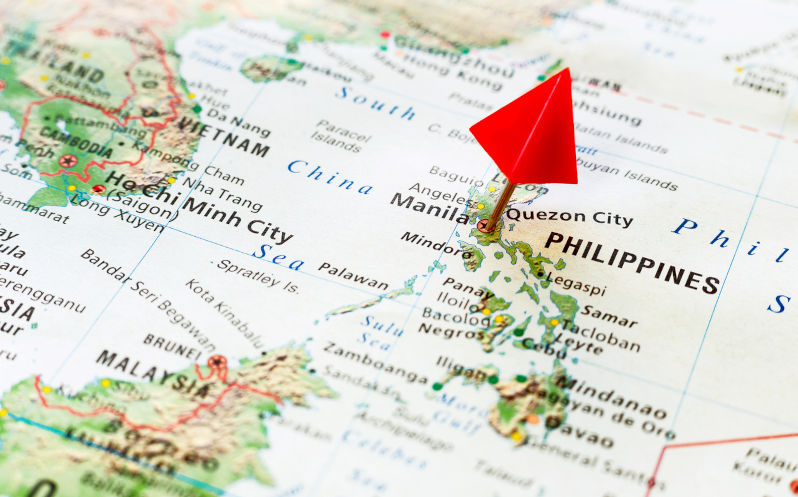Squad a strategic boon for India and the Quad
July 8, 2025
Manila is considering expanding the “Squad” — a security coalition focused on operational maritime deterrence comprised of the US, Japan, Australia and the Philippines — to include India and South Korea.
This geopolitical proposition was made at the 2025 Raisina Dialogue by Armed Forces of the Philippines Chief of Staff Romeo Saturnino Brawner Junior.
While discussions at the formal level are yet to take place, India’s accession to this minilateral framework aligns with its strategic priorities. India’s participation would also serve as a force multiplier for the Quad.
India’s ambition to establish itself as a credible Indo-Pacific power depends on extending its influence beyond the Indian Ocean into the wider Indo-Pacific region, particularly the South China Sea, which is crucial for its energy security, safety of supply chains and unimpeded trade movements. The region is increasingly defined by Chinese militarisation and contested sovereignty issues that make India vulnerable to unforeseen security circumstances.
Approximately 55% of Indian trade and energy shipping routes pass through the Strait of Malacca. Chinese dominance over this corridor could give Beijing coercive leverage in times of crisis. India’s ONGC Videsh investments in Vietnamese offshore energy blocks continue to face Chinese intimidation, despite the 2016 Permanent Court of Arbitration ruling invalidating China’s expansive maritime claims extending through the nine-dash line.
India’s Security and Growth for All in the Region doctrine expanded in March 2025 to become the Mutual and Holistic Advancement for Security and Growth Across Regions doctrine, aiming for inclusive regional security. But Chinese control of vital maritime infrastructure threatens India’s strategic and commercial interests.
By joining the Squad, India can move from being a bystander to a stakeholder in upholding freedom of navigation while countering coercive maritime tactics. The Squad would be an operational extension of India’s support for international law and strengthen the regional strategic equilibrium.
Despite a history of limited strategic engagement, India-Philippines defence ties have warmed in recent years. The 2022 BrahMos missile deal marked a breakthrough, valued at approximately US$375 million. In 2025, the Philippines indicated its interest in procuring additional BrahMos systems. Follow-up plans for procuring Akash surface-to-air missiles in 2025 reinforce Manila’s confidence in New Delhi’s defence technology and role as a regional arms supplier.
Bilateral co-operation has expanded to include maritime domain awareness, coast guard training and joint hydrographic surveys, signalling a more integrated partnership. India’s endorsement of the 2016 Permanent Court of Arbitration ruling marked a strategic shift from neutrality to support for international norms.
Formalising this trajectory through the Squad would institutionalise joint exercises, intelligence-sharing and tactical co-ordination. Unlike the Quad, the Squad offers a localised mechanism where India can enhance its frontline maritime readiness. For the Indian Navy, greater maritime domain awareness and advanced military preparedness are critical.
Sceptics argue that India’s greater presence in the South China Sea might render China more hostile towards India. Such apprehensions are self-defeating as China will always do what it must to contain India. Stand-offs across the years, such as Doklam in 2017, Galwan in 2020, issuing lists of Chinese names for places in India’s Arunachal Pradesh, and China’s support for Pakistan during India’s anti-terror Operation Sindoor prove that New Delhi must shed all strategic inhibitions when dealing with China.
India’s Indo-Pacific vision is shaped by its preference for multi-alignment and preserving its strategic autonomy. Yet realities on the ground — such as China’s standoff in Galwan, airspace intrusions over Taiwan and aggressive behaviour near the Second Thomas Shoal — have redefined the region’s strategic urgency, calling for greater minilateral co-ordination.
The Quad is evolving into a strategic co-ordination hub. This is evidenced by its January 2025 joint statement, which condemned “unilateral attempts to alter the status quo by force”, an unmistakable rebuke towards China. But the Quad’s broad focus limits its ability to engage in localised security contingencies such as the South China Sea dispute.
The Squad has the potential to become a tactical arm to the Quad’s strategic game plan. The Squad engages in real-time maritime drills, surveillance and operational signalling in China’s immediate periphery. The Indo-Pacific Maritime Domain Awareness Initiative aligns with the Squad’s objectives. India’s inclusion in the Squad would not dilute its commitment to inclusive regionalism. It would demonstrate an ability to calibrate strategy across layers of minilateralism.
India’s naval outreach in Southeast Asia is already substantial. Bilateral engagements with ASEAN littorals such as Indonesia, Malaysia, Singapore, Thailand, and Vietnam reinforce a consistent maritime footprint.
By entering the Squad, India would assert that its Indo-Pacific engagements are based on sovereign decisions, not Chinese vetoes. China’s naval bases in Gwadar and Djibouti and its “String of Pearls” strategy highlight the importance of viewing maritime security as a geostrategic continuum. Joining the Squad would also boost operational depth to India’s advocacy for freedom of navigation and increase its credibility as a net security provider in the Indo-Pacific region.
The Squad complements the Quad by bridging the operational gap – focusing on real-time co-ordination, deterrence and frontline readiness in the most volatile part of the Indo-Pacific.
India must protect its economic and strategic interests and translate its vision of a free and open Indo-Pacific into an actionable presence. Squad membership would be a strategic affirmation – both for India and the Squad in its goal to uphold a rules-based order.
Republished from East Asia Forum, 4 July 2025
The views expressed in this article may or may not reflect those of Pearls and Irritations.

